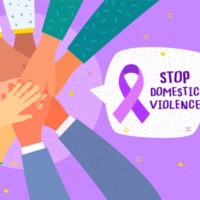3 FAQs on Domestic Violence in Maryland

Domestic violence represents a unique intersection of the Maryland family and criminal codes. Unlike most criminal offenses under state law, domestic violence requires a specific relationship between the victim and alleged abuser. Moreover, only certain crimes qualify as abuse under state domestic violence laws. And depending on the situation, victims of domestic violence may be eligible for one of several types of protective orders.
- Who Can Qualify as a Victim of Domestic Violence?
As provided in Maryland Code of Criminal Law Section 4-501, only certain individuals can qualify as a victim of domestic violence. Under this section, the following relations are eligible for domestic violence protection:
- The current or former spouse of the abuser;
- The current roommate or cohabitant of the abuser;
- Any relative of the abuser by blood, marriage, or adoption;
- Any parent, step-parent, child, or step-child of the abuser who lived in the same residence for at least 90 days in the past year;
- A vulnerable adult;
- The other parent of a child of the abuser;
- Any sexual partner who had a relationship with the abuser in the past year and alleges certain sex crimes.
- What Types of Abuse Qualify as Domestic Violence?
Section 4-501 also lists several acts that can as domestic violence in Maryland. Under state law, domestic violence can involve any of the following:
- Abuse of a child or vulnerable adult;
- An act that causes severe physical harm to a victim;
- An act that places a victim in reasonable fear of imminent and severe physical harm;
- False imprisonment;
- Stalking;
- Revenge porn;
- Assault in any degree;
- Rape or sexual offense; or
- Attempted rape or sexual offense.
- What are the Different Types of Protective Orders?
A protective order is a legal device that helps protect victims of domestic violence from further abuse. Under Maryland law, there are three types of protective orders:
- Interim Protective Orders — These orders are issued by a District Court Commissioner in emergency situations when the state courts are closed. See Maryland Code of Criminal Law Section 4-504.1.
- Temporary Protective Orders — A Maryland state court may issue these orders after a hearing, if there are reasonable grounds to believe that abuse occurred. These orders can last for seven-day periods over the course of six months. See Maryland Code of Criminal Law Section 4-505.
- Final Protective Orders — A Maryland state court may issue these orders after a hearing in which the alleged abuser has an opportunity to be heard. These orders can last for an indefinite amount of time. See Maryland Code of Criminal Law Section 4-506.
Do You Need Legal Help?
If you have questions or need legal help, the Bel Air domestic violence attorneys at Schlaich & Thompson, Chartered can assist you. Reach out to us today for a consultation.
https://www.stclaw.net/how-does-a-military-deployment-affect-child-visitation-rights-in-maryland/
